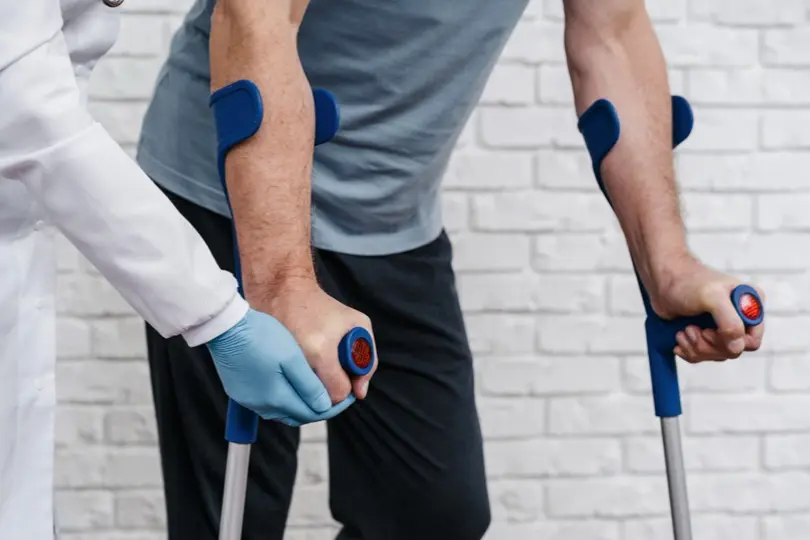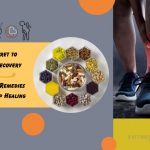
Minor or serious injuries require patience and resilience. The healing power of the body is quite phenomenal, yet it is closely tied to the processes of recovery management. Comprehending the process and making a deliberate effort can be used to accelerate the recovery process, decrease complications, and help create a deeper sense of well-being.
Prioritize Rest and Listen to the Body
Healing is based on rest, but this is not always considered thoroughly. When an injury occurs, the body is immediately restored to its original state, and this process requires energy. If a person ignores the signals of the body and goes through the pain, it can only increase damage, reduce recovery time, or result in another set of complications. Resting injured tissues involves minimizing activities that put stress on the injured region and observing limitations without any form of shame. Sleep is also a very important factor, as during a normal deep sleep, the body secretes hormones needed to facilitate repair and cell regeneration.
Maintain a Nutritious and Balanced Diet
Nutrition is an active, low-appreciated element of injury recovery. The body requires additional nutrients to heal all the damaged tissues, fight inflammation, and increase strength. The peculiar significance of protein lies in the fact that, besides providing the elements needed to restore muscles, ligaments, and skin, it aids in the process of muscle gain. Other useful vitamins are vitamin C and D, calcium, and zinc to promote collagen building that helps in the process of strengthening the bones, together with the immune system, which plays a significant role in the healing process.
Key nutrients for injury recovery:
- Protein – for rebuilding muscles, ligaments, and skin.
- Vitamin C & Zinc – for collagen production and wound healing.
- Calcium & Vitamin D – for bone strength and repair.
Smart foods to include:
- Leafy greens, berries, eggs, yogurt, citrus fruits, lean meat, nuts, and seeds.
Follow Medical Advice and Stay Consistent with Treatments

Physiotherapists are crucial in the recovery process of an injury. Rehabilitative programs and modalities are changed or adjusted by physicians or other medical personnel based on the type and extent of the injury. Missing follow-up sessions, disregarding the therapy program, or not taking medicines can greatly slow the healing and even lead to irreversible injuries. Patients who adhere to regimens such as physical therapy, wound care, mobility routines, and prescribed treatments have been shown to help restore functionality and, at the same time, reduce the chances of re-injury.
Incorporate Gentle Movement and Rehabilitation Exercises
Rest is good, but when taken to an extreme limit of immobility, it can result in rigidity, paralysis, and delayed recovery. The process of healing can be eased using mild movement and rehabilitation activities after a person has been in a position of securing clearance from a medical professional. The movements also improve the unobstructed circulation of blood to the affected point and subsequent delivery of nutrients, as well as removal of toxins. It will also enable the movements to become safe and narrow depending on the needs of the injury, as the exercises will be supervised by a professional.
Manage Stress and Support Emotional Well-being
The psychological side of injury is usually as considerable as the physical one. There might be feelings of frustration, anxiety, or even depression when the daily life routine is interrupted or there are big expectations about progress. Managing the level of stress is imperative at the time of recovery, as a higher level of stress can weaken the immune system and delay the recovery period. Stress can be reduced drastically by relaxing, going outside, being attentive, or, when possible, telling people about what one is going through. Emotional resilience helps the recovery process by making the physical process easier on a hormonal level and by thinking positively about things.
To support emotional healing:
- Practice deep breathing, meditation, or mindfulness.
- Stay socially connected with friends or support groups.
- Speak to a mental health professional if stress feels overwhelming.
Why it matters: High stress weakens your immune system and slows tissue repair.
Protect the Body and Prevent Future Injuries
When the early stage of recovery is in process, it is essential to concentrate on prevention. Injuries tend to expose some areas in the body to greater vulnerability, such that they are prone to re-injury without suitable protection. Paying attention to posture, ergonomics, and fitness levels, in general, helps them avoid additional damage. In a case where the injury was a result of any accident, you can consult motorcycle accident attorneys in Denver, who would guide you on how bodily and legal healing can take place. This guarantees that nothing is left out in the incident, and one can concentrate on the rehabilitating process in a stress-free way.
Conclusion
Recovery following a trauma requires patience, care, and the willingness to adapt to short-term restrictions. When putting rest first, nurturing the body, attending instructions of the medical professionals, integrating safe movement, responding to stress, and preventing harm caused in the future, recovery can then develop into a more enriching process than merely a burden. Learning that health has to do with the mind, with habits, as well as with the body, is enough motivation to seek a more balanced healing process.
Photo Credit:
Photo 1, Credit to Freepik || Photo 2, Credit to Freepik (CC0 1.0)




